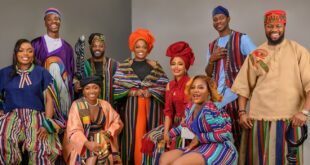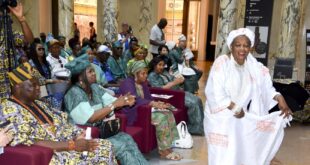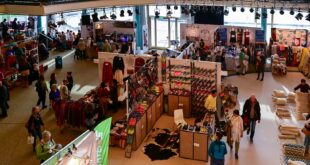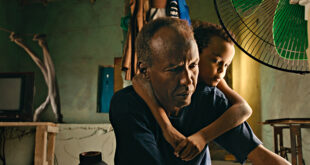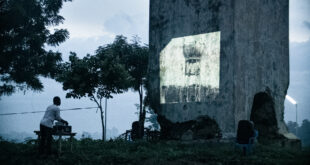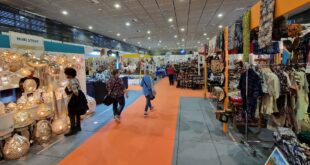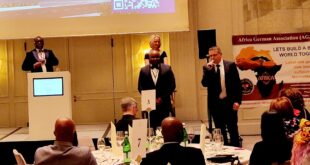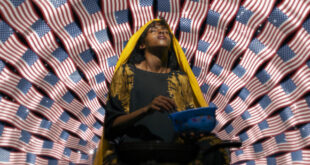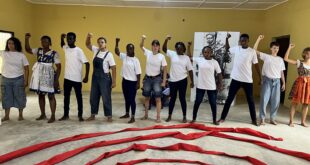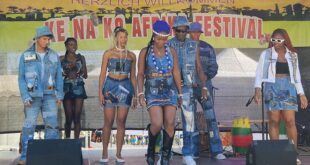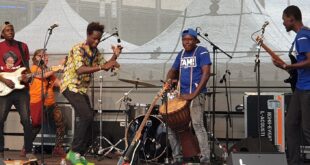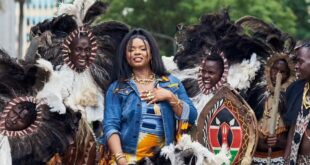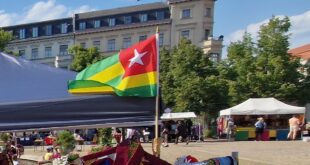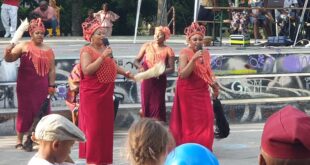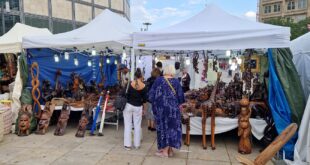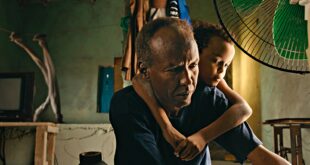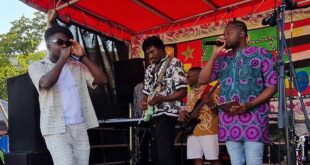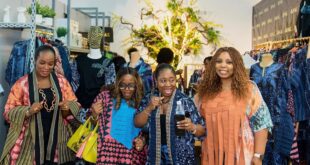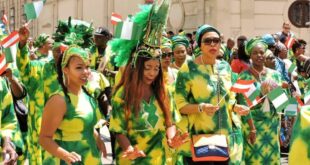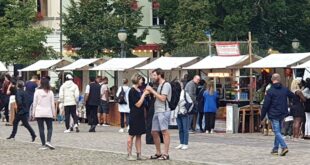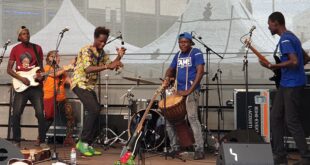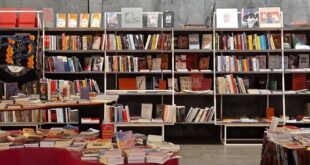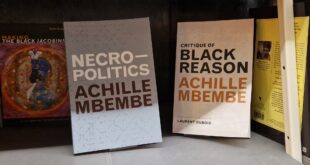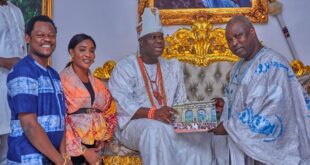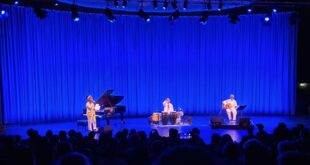One of the highlights of this year’s düsseldorf festival! which counted a record 22,000 visitors was definitely the final concert featuring Elida Almeida. The Cape Verdean singer and her four-man band brought the house down with their mix of morna, funaná, coladeira and Afro-Latin sounds, reports Tina Adomako.
In 2015, Elida Almeida won the prestigious Prix Découvertes RFI. This is an annual prize awarded by French radio station RFI, which, since 1981 has been pursuing the goal of making musical talents from Africa better known to international audiences.
At the time, Elida Almeida had already made a name for herself as a singer in her island home of the Cape Verdes. The Prix Découvertes RFI quickly catapulted her from the local island bars to major international stages.
On 30 September, she performed with her band for a completely enraptured audience in the festival’s trademark marquee tent by the Rhine River in Düsseldorf.
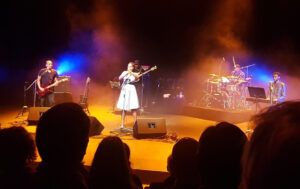
Elida Almeida danced onto the stage in red high heels, her polka-dot dress swinging and whirling to the music as the band opened with funky Afro-Cuban sounds, her energetic stage presence immediately making itself manifest.
Her first song was a rhythmic piece that she ended with a girlish curtsey and a question flung at the audience: Alles gut? To which the crowd in the sold-out tent responded with a loud “Jaaa”. The fiery intro was followed by a smooth ballad, inspired by her ex, so the singer tells the audience. This mysterious ex will be the subject of more ballads during the evening’s performance.
With an expressive voice, she bemoans whatever it is that the ex-lover did or did not do. Since the whole repertoire was sung in her native Creole language, most concert goers probably did not understand any of the lyrics. But that didn’t matter once but, because Elida Almeida presence on stage is so physical.
She sings with her whole body and changing facial expressions, so that the moods of each song are transmitted without words. The musical fare switches between quieter songs and vocal explosions, which mix traditional Cape Verdean sounds – Funaná, Coladera and Tabanka – with Latino flair.
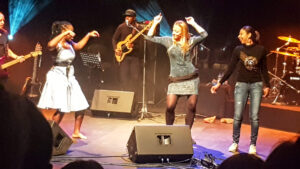
Elida Almeida is a bundle of energy on stage, radiating an infectious joie de vivre. One clearly notices how much fun she is having herself. It is as if she were celebrating a private party with her musicians, with whom she is in constant contact, dancing from one band member to the next.
By the time she is into her fourth song – a traditional funanà beat – she is unstoppable. The drummer gives his all. The red pumps are flung off and the singer now dances barefoot, gyrating wildly to the music. She gets two women from the audience to join her, and they skilfully master the hip movements she presents for them to follow.
With “Djam Krel Pa Mi” followed by a soulful song “Grogu Kaba” things cool down a bit. But the mellow mood doesn’t last very long and before you know it, it’s back to the fiery rhythms which get the whole audience on their feet.
At the end of the show, not a single member of the audience is still in their seat. Everyone is dancing in the cramped spaces between the colourful seats. No one seems to want to go home.
So Elida sings two encores, the audience is allowed to sing along “oh lé lé lé” and a simple Creole chorus. And then it’s over.
If there is anything to criticise about this concert, then this: The organisers should have known that this kind of music that gets even the stiffest person dancing is totally unsuitable for a seated concert.
————
More about düsseldorf festival! at https://www.duesseldorf-festival.de/en/
 THE AFRICAN COURIER. Reporting Africa and its Diaspora! The African Courier is an international magazine published in Germany to report on Africa and the Diaspora African experience. The first issue of the bimonthly magazine appeared on the newsstands on 15 February 1998. The African Courier is a communication forum for European-African political, economic and cultural exchanges, and a voice for Africa in Europe.
THE AFRICAN COURIER. Reporting Africa and its Diaspora! The African Courier is an international magazine published in Germany to report on Africa and the Diaspora African experience. The first issue of the bimonthly magazine appeared on the newsstands on 15 February 1998. The African Courier is a communication forum for European-African political, economic and cultural exchanges, and a voice for Africa in Europe.



